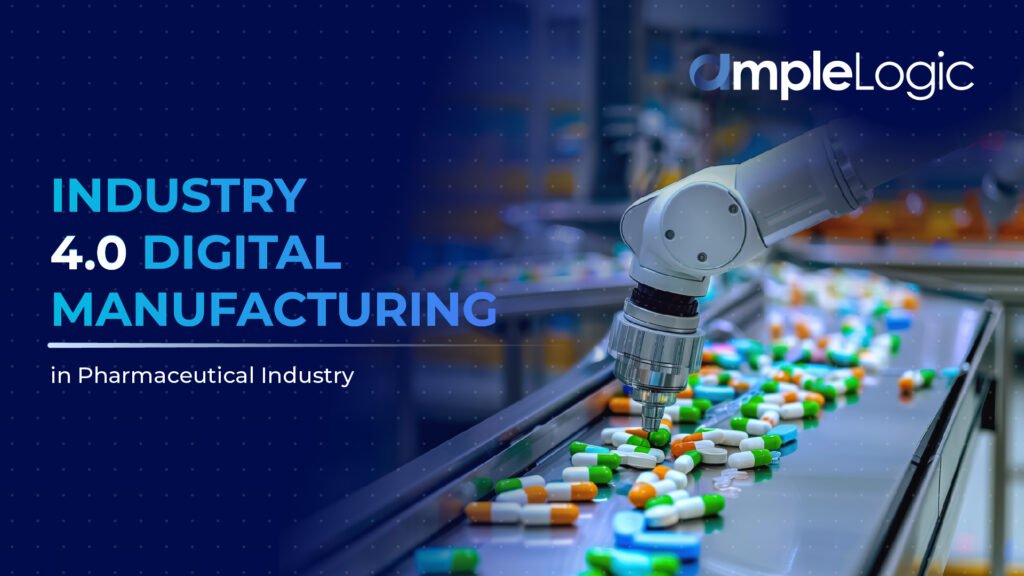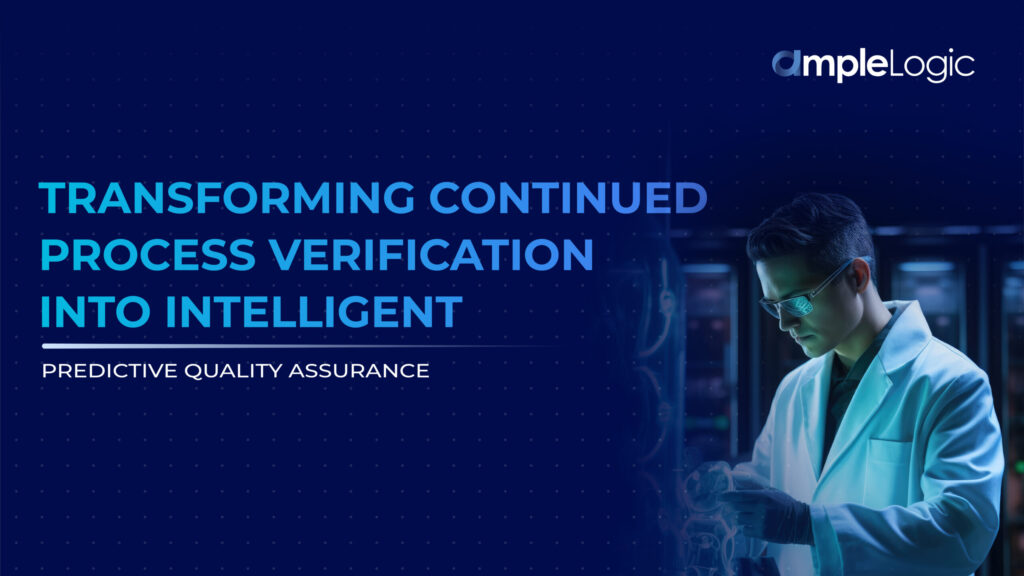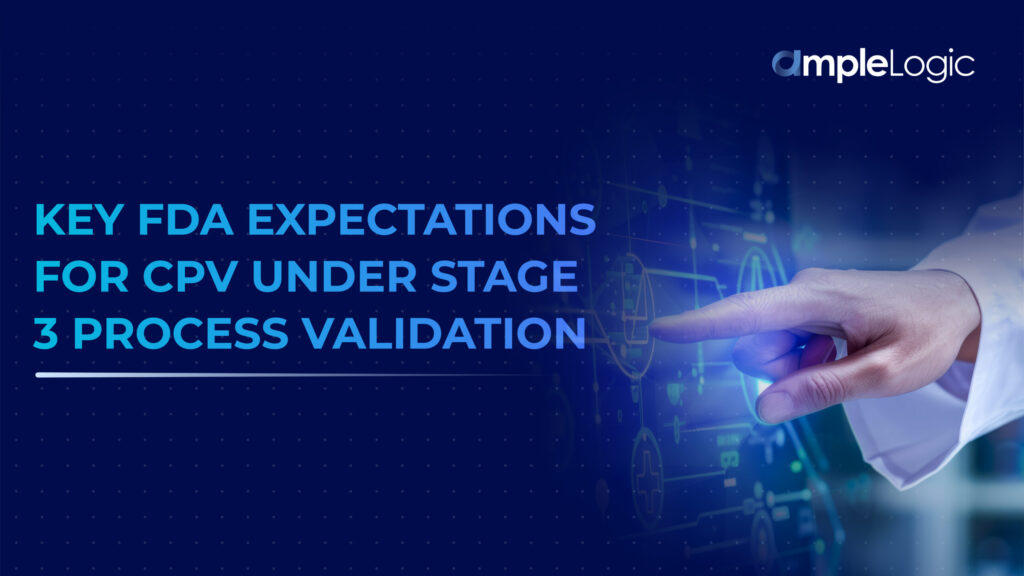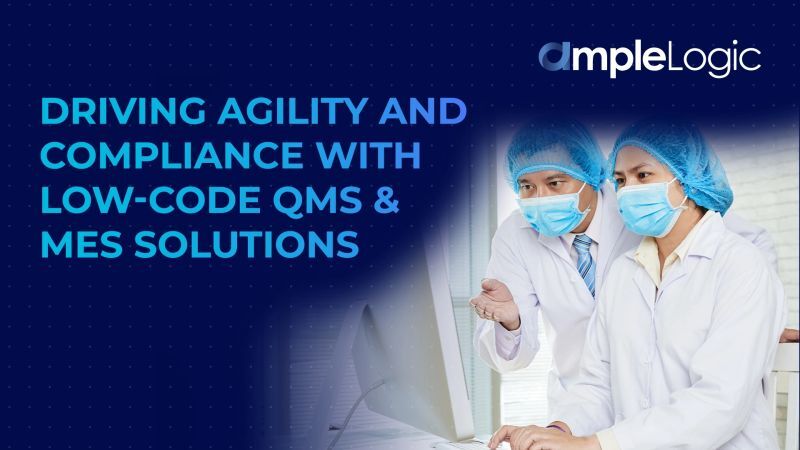Enhancing Product Quality Review through Automated Excursion Handling in Pharmaceutical Manufacturing
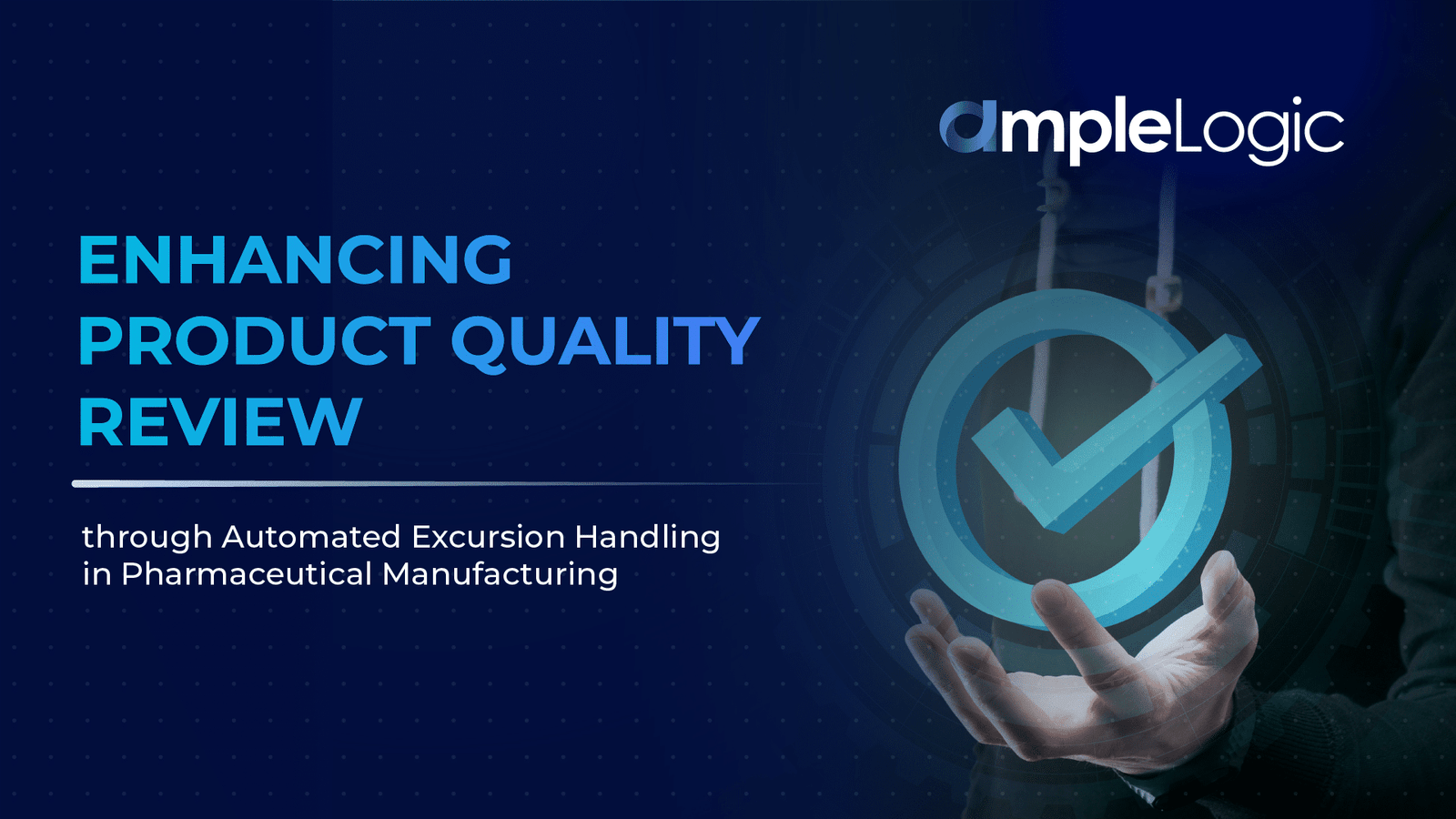
Effective management of excursions is crucial in pharmaceutical manufacturing to uphold both product quality and regulatory compliance. Integrating technological solutions into Product Quality Review (PQR) workflows offers a comprehensive approach to address deviations promptly and efficiently. Traditional approaches to excursion handling within PQR workflows often rely on manual documentation and investigation processes. This manual approach can lead to delays in identifying and resolving excursions, increasing the risk of product quality issues. Moreover, the lack of real-time data visibility and integration with PQR systems makes it challenging to assess the impact of excursions on overall product quality. Automating excursion handling within the PQR framework enables companies to ensure timely resolution of issues, enhance product quality, and streamline regulatory compliance.
Role of Technological Solutions in PQR Excursion Handling
Integrating technological solutions into PQR workflows enables proactive management of excursion events, facilitating seamless integration with manufacturing data and PQR systems. By harnessing automation, data analytics, and real-time monitoring capabilities, pharmaceutical companies can enhance their ability to detect, investigate, and mitigate excursions effectively within the PQR framework. This not only enhances operational efficiency but also strengthens regulatory compliance measures, ensuring robust oversight of product quality throughout the manufacturing process.
Key Components of Automated Excursion Handling in PQR
- Real-Time Data Integration: Automated excursion handling systems should integrate seamlessly with manufacturing data systems to capture real-time process data and excursion events. This integration provides visibility into manufacturing processes, allowing for early detection and assessment of such deviations within the PQR framework.
- Automated Alerting and Escalation: Automated alerting mechanisms notify relevant stakeholders, including quality assurance, production, and regulatory teams, about excursion events in real time. Escalation protocols ensure that critical issues are promptly addressed within the PQR framework, minimizing the impact on product quality and compliance.
- Root Cause Analysis and Impact Assessment: Utilizing data analytics and AI-driven tools, organizations can conduct root cause analysis and assess the impact of excursions on product quality within the PQR framework. This data-driven approach informs decisions on Corrective and Preventive Actions (CAPA) to mitigate risks and prevent recurrence.
- Electronic Documentation and Reporting: Transitioning from manual to electronic systems for documenting excursion details, investigation findings, and CAPAs within the PQR framework ensures data integrity and facilitates regulatory compliance. Centralized electronic repositories support traceability during audits and inspections.
- Continuous Improvement through PQR Integration: Leveraging historical excursion data and PQR reports, organizations can identify trends, implement process improvements, and enhance overall product quality within the PQR framework.
Benefits of Automated Excursion Handling within PQR
- Enhanced Product Quality Review: Automation of excursion handling processes within PQR workflows ensures timely identification and resolution of excursions, enhancing the overall quality review process.
- Improved Compliance: Automated excursion handling systems facilitate regulatory compliance by enforcing standardized processes, documentation practices, and CAPA implementation within the PQR framework.
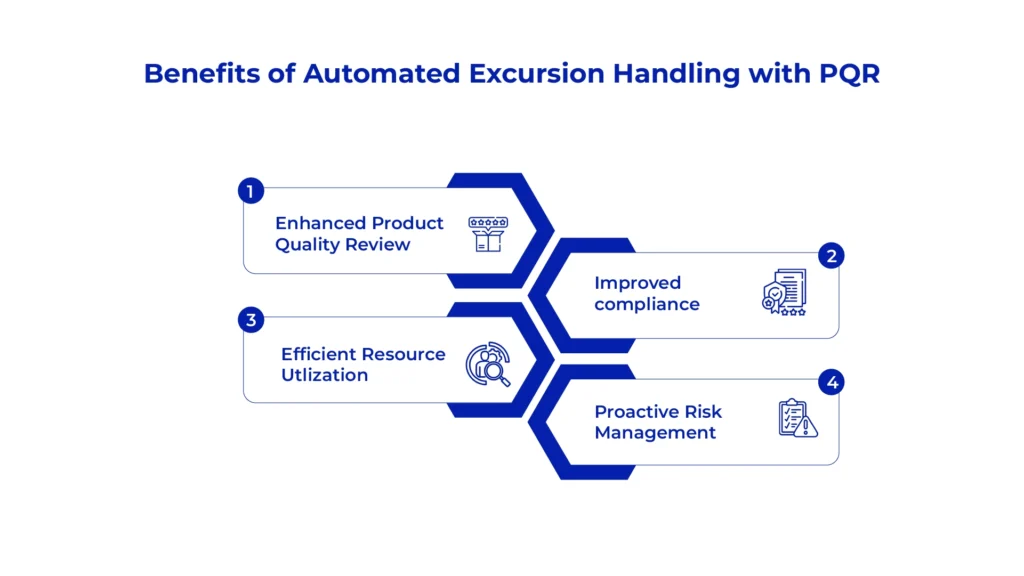
- Efficient Resource Utilization: By automating routine tasks and streamlining workflows, pharmaceutical companies can optimize resource allocation and reduce the time and effort required for excursion handling within the PQR framework.
- Proactive Risk Management: Real-time monitoring and data analytics capabilities enable proactive risk management within the PQR framework, minimizing the impact of excursions on product quality and patient safety.
Conclusion
Automating excursion handling processes within PQR workflows is essential for pharmaceutical companies to maintain product quality, ensure regulatory compliance, and drive continuous improvement. By leveraging technology solutions to integrate real-time data, automate alerting mechanisms, and facilitate root cause analysis within the PQR framework, organizations can enhance their ability to manage excursions effectively and proactively. Embracing this feature within PQR workflows is critical for pharmaceutical companies to stay competitive, mitigate risks, and deliver safe and effective products to patients worldwide.



